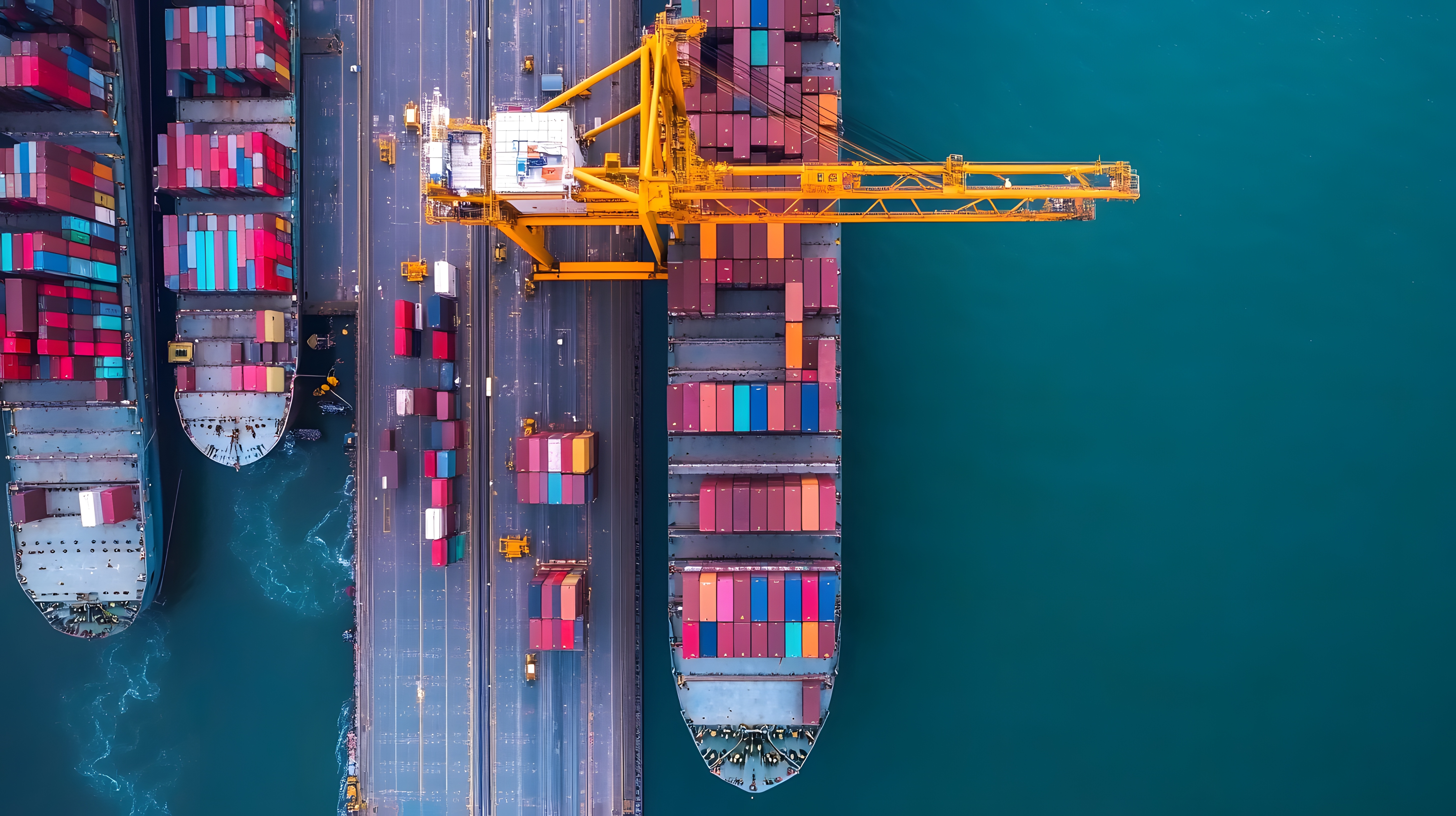Freight forwarding hiring in 2025 was defined by focus, not volume.
Forwarders across the U.S. and Europe adjusted their recruitment priorities around digital operations, compliance, and commercial resilience. Generalist hiring slowed, replaced by targeted searches for people who can manage risk, optimise systems, and strengthen client relationships.
In the U.S., export and customs expertise dominated hiring demand. In Germany, sustainability and digital logistics drove most new roles. Across markets, the trend was the same: specialist skills over scale.
Here are the five shifts that shaped freight forwarding jobs in 2025 and what they mean for employers planning next year’s recruitment strategy.
1. United States: Selective hiring in export and brokerage operations
U.S. forwarders scaled back generalist hiring in 2025 and pushed hard into air export, customs brokerage, and client-facing account management. Post-pandemic trade normalisation and tougher U.S. Customs and Border Protection (CBP) rules made documentation and compliance top priorities.
Many firms paused entry-level recruitment and shifted budgets toward licensed brokers and export specialists who guard margin through accuracy and client service.
Key shifts
- The U.S. freight-forwarding brokerage market is estimated at US $5.32 billion in 2025, growing as complexity rises. Mordor Intelligence
- The broader U.S. freight-forwarding brokerages & agencies industry size is around US $164.3 billion in 2025. IBISWorld
- Candidates holding broker licensure or CBP/TSA certification command premium rates, especially in Los Angeles, Chicago and Dallas.
- Roles that mix compliance, export documentation and client-account skills were filled fastest and carried higher wages.
Recruiter view
If you are hiring, aim for candidates who know export documentation, hold or are working toward a brokerage licence, and understand how freight-forwarders think. Employers building internal training and succession programmes for brokerage and compliance roles are already winning out on retention and performance.
Global view
The U.S. trend is part of a larger shift in forwarding: accuracy, regulation knowledge and specialist skills matter more than sheer headcount. Everywhere from Europe to Asia clients and candidates alike are responding.
2. Germany: Rising demand for digital freight and sustainability talent
While other markets focused on recovery in 2025, Germany pushed forward. Forwarders accelerated digital transformation and made sustainability part of daily operations.
Major providers such as DHL, DB Schenker, and Kuehne + Nagel built larger teams for data analysis, automation, and carbon tracking. Mid-sized firms followed as clients began demanding visibility and emissions reporting as standard.
Key shifts
- Germany’s freight and logistics sector is projected to expand at an average annual growth rate of around 4.4% through 2033, driven by continued digital investment and supply chain modernisation (IMARC Group).
- Recent German logistics surveys highlight digitalisation, cybersecurity and lack of skilled labour as top issues for logistics and supply chain leaders, which is reflected in more job adverts calling for automation, analytics and ESG-related skills.
- Salaries for digital or sustainability roles increased by 10–14% as supply tightened.
- Germany has more than 3.5 million people employed in logistics, over 7% of total employment, making any shift in skills demand highly visible across the labour market.
- Ongoing green transition policies mean nearly 20% of jobs already involve “green tasks”, supporting stronger demand for people who understand ESG and environmental reporting.
Recruiter view
Fowarders are hiring talent who can connect freight operations with data. The strongest candidates understand systems, visibility tools, and sustainability metrics. If you are recruiting for 2026, look for operators who can use TMS platforms and track carbon performance. Internal training on digital workflows will also help offset competition for external talent.
Germany’s direction is setting the pace for Europe. The same hybrid roles are now appearing in the Netherlands, Belgium, and the UK.

3. Global: Risk and regulation drive 2025 hiring priorities
Compliance has always mattered in forwarding. What changed in 2025 was scope and visibility.
Rules tightened, audits became more frequent, and regulators started holding logistics providers directly accountable for data, sanctions, and environmental reporting. That shift turned compliance from a support function into a hiring priority across every region.
Three things drove the change:
- Trade complexity: Ongoing sanctions linked to Russia, new U.S.–China tariffs, and the EU’s Carbon Border Adjustment Mechanism all expanded documentation and audit requirements.
- Data regulation: Digital customs systems like the EU’s ICS2 and the U.S. ACE platform created demand for staff who can handle secure digital filings.
- Cyber and ESG risk: A rise in ransomware attacks and new ESG disclosure rules pushed forwarders to hire compliance staff with both technical and regulatory fluency.
Key shifts
- In the U.S., new hires in trade-compliance functions reported salary increases of approximately 10-15% over the previous year.
- Customs audit and sanctions roles grew fastest in Germany, the U.S., and the Netherlands.
- Between October 2024 and May 2025, WTO members and observers implemented 644 trade-related goods measures..
- Forwarders are investing heavily in internal upskilling, expanding compliance awareness training for operations and customer-facing teams to meet new audit and data-integrity standards.
Recruiter insight
Employers are hiring compliance-focused staff directly into operations and account management — not just legal or governance roles. Teams that manage high-risk trade lanes are building in-house audit capability, while others are upskilling pricing and documentation staff to reduce exposure.
If you are hiring, look for operators or coordinators who can interpret trade rules, manage cyber protocols, or prepare for customs audits. Those are the profiles keeping shipments moving and reducing penalty risk.
Global outlook
Forwarders in Singapore, the UAE, and across Europe are following the same path as the U.S., embedding compliance into daily workflows. With digital customs reform and ESG reporting expanding in 2026, compliance talent has shifted from cost centre to competitive advantage.
4. Forwarders Hire for Flexibility Not Just Experience
2025 made one thing clear. The forwarders winning new business were the ones who could move fast when trade patterns shifted. Capacity changes, new regional supply chains, and carrier delays meant operators had to be comfortable switching between air, ocean, and road without slowing down.
Employers have started valuing cross-modal skill over years in the job. The best hires were those who could reroute cargo, manage carrier relationships, and find solutions when lanes closed or volumes dropped.
What changed in hiring
- Hiring briefs now emphasise cross-modal and problem-solving skills — forwarders are seeking operators who can flex between air, ocean, and road, not just specialists tied to one mode.
- More companies restructured teams to reduce reliance on single-mode specialists.
- Nearshoring to Mexico and Eastern Europe created new regional traffic that demanded flexible operators.
- Bilingual professionals with experience across modes advanced fastest and stayed longest in role.
Recruiter insight
We have seen a clear shift in what employers ask for. They want operators who can handle pressure, switch modes easily, and think commercially about how delays impact customers. If you are hiring, look for evidence of that flexibility in how candidates talk about past projects, not just job titles.
Forwarders that train their people across modes are keeping customers loyal and protecting revenue during market swings. Adaptability has moved from a soft skill to a measurable advantage.
Global picture
In the U.S., multi-skilled export operators are filling gaps left by driver and warehouse shortages. Across Europe, cross-modal teams are helping forwarders capture nearshore work. This is becoming the standard way to build resilience in forwarding teams.
5. Hubs Regain Importance in Global Freight Recruitment
2025 marked the return of mobility in forwarding. After years of limited relocation, professionals started moving again to stay close to major logistics centres. Frankfurt, Hamburg, Atlanta, and Houston all saw consistent mid-career hiring growth as companies prioritised on-site expertise.
What’s driving it
- Persistent labour shortages in customs brokerage, air export, and key account roles.
- Limited remote work options across forwarding and logistics operations.
- Investment in infrastructure and nearshoring routes creating demand in regional clusters.
- Growing use of relocation bonuses and visa sponsorships to attract skilled staff.
Major freight hubs are seeing increased mobility for talent as companies target on-site expertise rather than remote roles. According to TerraTern’s 2025 review of Germany’s supply chain jobs, relocation support and foreign-language roles are becoming more common in logistics recruitment.
Recruiter insight
Professionals willing to relocate are finding faster career progression and stronger job security. For employers, proximity still matters. Teams based near carriers, ports, or major customers handle issues faster and maintain tighter communication.
If you are hiring, consider promoting “regional flexibility” rather than full relocation. Many candidates are open to moving within a few hours of a freight hub if the role offers stability and long-term potential. Forwarders that make this option realistic are attracting the best operational and commercial talent.
Global pattern
Germany’s logistics corridors continue to attract customs and export specialists, while the U.S. Gulf Coast remains a hotspot for air and ocean freight recruitment. The trend points toward regional concentration rather than full centralisation — a sign that in forwarding, physical presence still creates the most value.
Find the Specialists Shaping Freight Forwarding in 2026
The freight forwarding market is evolving fast. 2025 showed that success depends on specialist knowledge, digital capability, and operational accuracy. Forwarders entering 2026 need teams that can manage complexity, protect margins, and adapt to shifting trade patterns.
Freight Appointments works with leading freight forwarding and logistics businesses to build those teams. If you’re planning your 2026 hiring strategy, our recruiters can help you identify the people who keep your operations moving and your customers confident.
Explore our freight forwarding recruitment services






